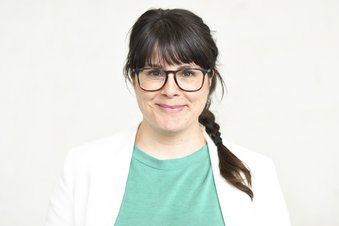
Ingela Visuri has a PhD in the Study of Religions from Södertörn University (Sweden) and pursues interdisciplinary research in the intersection between the humanities and cognitive science. She has a special interest in the human ability for empathy and mental simulations (e.g. mentalization and role-taking) and the role such cognitive mechanisms play in human interaction, and has published on topics such as supernatural relationships, embodied supernatural experiences, imagination and parasocial relations. In her empirical work, she draws on an anthropological mixed-methods approach, which means that subjective narratives form the basis for the building of cognitive hypotheses and are combined with psychometric tests that cast light upon underlying traits that may contribute to various experiences and interpretations. Visuri’s background in the humanities has also inspired an interest in methodological issues, such as the bridging between epistemologies and methodological considerations in the study of atypical cognition.
Visuri moreover runs the Nordic Network for the Cognitive Science of Religion in collaboration with Aarhus scholar Uffe Schjødt and is currently working to introduce the cognitive science of religion to a broader academic audience in Sweden, for instance by teaching courses that relate to this research field. She is also part of the editorial board of the Swedish magazine Religion which publishes popular scientific articles on current research in the Study of Religions.
Website: https://ingelavisuri.academia.edu/
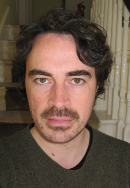
Hugh Turpin, PhD fellow, School of Culture and Society, Department of the Study of Religion, Aarhus University, Denmark
Hugh studied philosophy (BA) at Trinity College Dublin and holds master’s degrees in social anthropology (MSc, Oxford) and cognitive science (MA, UCD). He is currently undertaking the joint QUB/Aarhus University PhD in the Cognitive Science of Religion. His research examines the effects on religious believers of exposure to behaviours on the part of their paragons/models which could be taken to suggest that the model in question does not in fact hold the beliefs they claim to hold. The research will examine the putative connection between religious hypocrisy/scandals and the abandonment of previously held theistic beliefs and religious commitments. It will be conducted through a mixture of lab-based experiments and ethnographic fieldwork carried out in the Republic of Ireland. Apart from the Cognitive Science of Religion proper, Hugh’s other research interests include non-religious socio-cultural phenomena that draw on the psychological technologies and propensities sometimes said to be exploited by religion, and the anthropology of Japanese society.
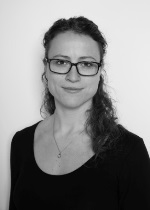
Anne Buch Møller, PhD fellow, School of Culture and Society, Department of the Study of Religion, Aarhus University
Anne has an academic background in psychology and the Study of Religion and she has received extensive training in quantitative research methods. She is currently undertaking the joint Queen´s University Belfast/ Aarhus University PhD in the Cognitive Science of Religion. Her PhD project investigates the temporal dynamics of Christian prayer, stress and well-being at different temporal resolutions. Her main area of interest lies in the intersection between religion, health and coping.
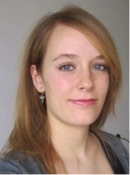
Ella Paldam, PhD fellow, School of Culture and Society, Department of the Study of Religion, Aarhus University
Ella has a BA in the study of religion from Aarhus and has received extensive training in qualitative and quantitative research methods. Her PhD project on California Indians investigates how indigenous tradition is constructed and maintained through religious beliefs and practices. In 2010 she did her field work among the Chumash Tribe in the Santa Barbara area. The project focuses on the Bear Ceremony which is the core common ritual of a highly heterogeneous new religious movement among California Indians.
Besides her PhD project, Ella studies the role of expectation in charismatic healing in a Danish Christian context. In this project, a large archival material has been coded into an extensive database with more than 800 cases of healing through intercessory prayer.
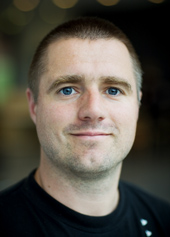
Jesper Østergaard, Fellow, Aarhus University
Jesper Østergaard holds a MA in the Study of Religion and Semiotics and a PhD in the Study of Religion, Aarhus University. During his studies he worked with different topics such as cultural models, internalization, religious narratives, branding, tourism, conceptual integration with material anchor, cognitive theories on ritual, pilgrimage, Tibetan religion and theories on space, place and landscape.
His research fields include cognitive science of religion, externalism, anthropology of religion, Tibetan religion, pilgrimage in different traditions, techniques of the body and the spatial and topographic turn in the humanities.
Current project focuses on the relationship(s) between landscape and cognition in Tibetan pilgrimage. It connects theories from cognitive science, i.e. externalism, with a focus on the concrete landscape, i.e. the topographic turn, to analyze how the landscape is integrated as cognitive scaffolding in the pilgrim’s cognitive process.
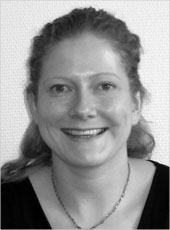
Gretchen Koch, Fellow, Aarhus University
Gretchen Koch's background is in philosophy of religion, and she is analyzing research from developmental and moral psychology to explore possible cognitive foundations for belief in souls, and the role which that belief plays in moral reasoning. She is particularly interested in the conditions under which practice of empathy may be stimulated or inhibited, and the ways in which narratives concerning the soul may be invoked in post hoc moral justification.
Gretchen Koch has a BA in Religious Studies from Texas Christian University, an MA from the Centre for Religion, Culture, and Gender at the University of Manchester and a PhD from the Department of the Study of Religion, Aarhus University.
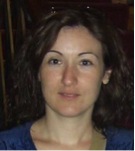
Olympia Panagiotidou, PhD Fellow, Aristotle University at Thessaloniki and School of Culture and Society, Department of the Study of Religion, Aarhus University, Denmark
She holds a joint MA in Cognitive Science and the Study of Religion from Aristotle University at Thessaloniki and Aarhus University in Denmark, and a BA in the History and Archaeology from Aristotle University.
Her current project focuses on the healing of diseases in the temples of Asklepios and how people think about and explain their experiences in his sanctuaries. This project applies cognitive approaches in the analysis of the cult of Asklepios. The application of research in neurobiology and cognitive sciences of religion and health, pain and prayer, dream research and the on-going research on placebo, art and religious behavior is expected to throw light on the potential cognitive capacities and micro-processes, which may have taken place in both the minds and bodies of the god’s worshippers resulting in the apparent healing of their diseases. They might also explain the implicit conceptions and concepts that led people to seek cures in the sanctuaries of Asklepios, and to propagate the power of the god. Her field of research includes the application of current cognitive theories on ancient Greek cults.
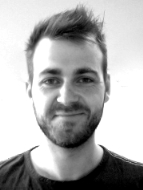
Marc Andersen, PhD fellow, School of Culture and Society, Department of the Study of Religion & Interacting Minds Centre, Aarhus University
Marc has an academic background in Psychology and in the Study of Religion from Aarhus University and has received extensive training in experimental methods. His PhD project on agency detection utilizes one of the most promising current conceptual frameworks in cognitive science (predictive coding) as well as eye-tracking technology. His main areas of interest lie in the intersection between spiritism, mysticism, and perceptual cognitive psychology.
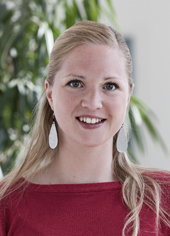
Else-Marie E. Jegindø, Fellow, School of Culture and Society, Department of the Study of Religion, Centre of Functionally Integrative Neuroscience, and The Danish Pain Research Center, Aarhus University and Aarhus University Hospital
Else-Marie holds a MA in the Study of Religion and Philosophy. Her PhD project was an interdisciplinary approach to the study of religious coping strategies that explored how religious practice modulates pain perception, both clinically and "in the wild". Her research is primarily empirical and combines a wide range of different measures, e.g. clinical pain assessment, psychometrics, psychophysiological measures and functional neuroscience. She is particularly interested in how religious, cultural and psychological beliefs interrelate with physiological processes, i.e brain and body.
Fields of research: cognitive science of religion, clinical pain research, experimental neuroscience, psychology of religion. Research interests: religious coping, religious behavior, high arousal rituals and pain, cognitive neuroscience, placebo mechanisms, philosophy of language.
In 2010 Else-Marie and Dimitris Xygalatas organized a field work expedition to Mauritius during the Thaipusam Festival in order to investigate the neurophenomenological mechanisms of this extreme ritual.
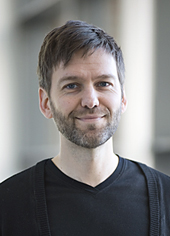
Lars Madsen
Lars Madsen holds a MA in The Study of Religion and Philosophy. His studies have centred on the philosophy of religion and the philosophy of language with Søren Kierkegaard, Rudolf Otto, Augustine and especially Ludwig Wittgenstein as focal points.
His current research project seeks to provide a philosophical grounding for a social conception of the cognitive science of religion. The project couples the notion of a socially founded normativity in Ludwig Wittgenstein’s later philosophy with recent culturally oriented theories of cognition by Merlin Donald and Michael Tomasello.
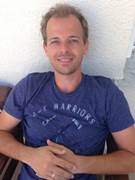
Panagiotis Mitkidis, Assistant Professor, School of Culture and Society - Centre for Interacting Minds (IMC), Aarhus University, Denmark
Originally from Greece, Panos spends his time between Denmark & the USA. He is an assistant professor of Behavioral Economics at the Department of Management, Aarhus University and visiting scholar at the Social Science Research Institute, Duke University. He is aligned with three centers: the Center for Advanced Hindsight at Duke University, the Interacting Minds Centre, and the Interdisciplinary Centre for Organisational Architecture at Aarhus University. His research lies in the fields of Behavioural Economics, with a special interest in how rituals affect moral behavior and can be life-changing. He studies human behavior and he hopes that understanding trust and cooperation will make the world a more caring place. He is married to Katerina Peterkova and when he rarely has free time he likes biking, cooking, and drinking wine with his friends. His most recent accomplishment is a little boy named Dimitrios.